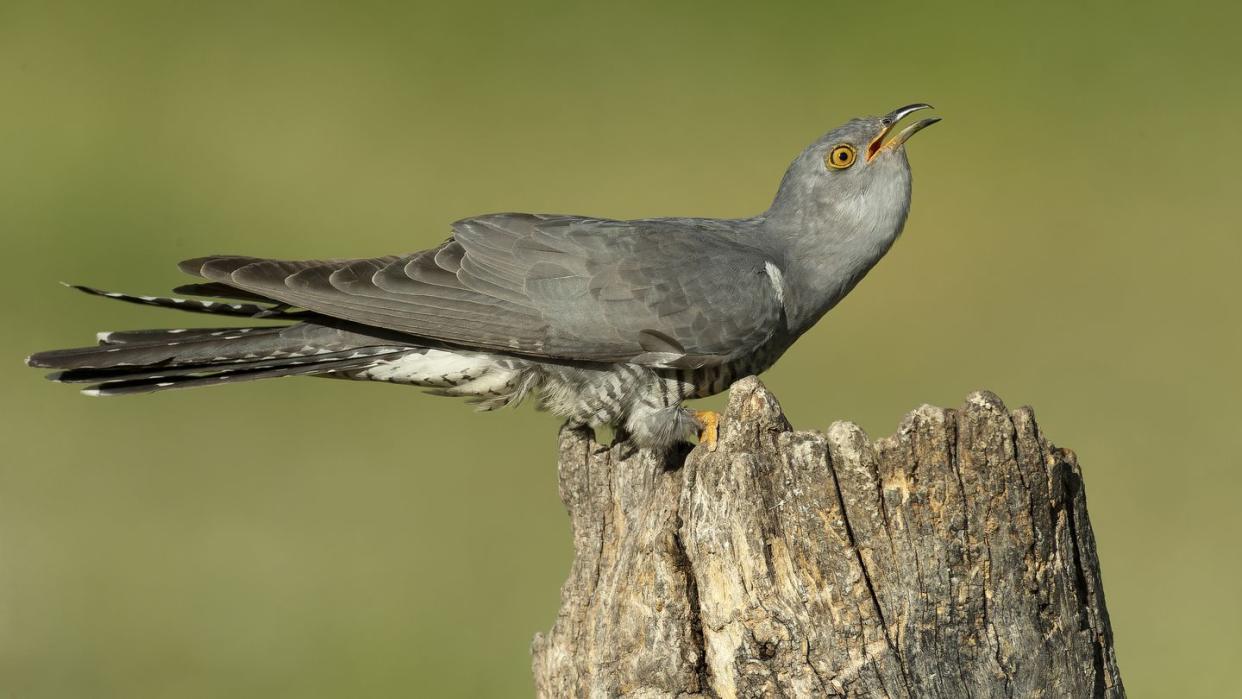The Cuckoo Is Remarkably Evolving to Outsmart Its Host Species

A lot of us will change our wardrobe to fit into a crowd, and the brood parasite known as the cuckoo has used evolution to do the same thing.
Because cuckoos lay their eggs in the nest of a host bird, the nestlings need to develop similar attributes to the host species in order to not get kicked out.
A new study analyzing the DNA and behavior of two cuckoo species shows that this drive to survive, along with the host species’ own evolutionary defenses, has sparked a ‘coevolutionary arms race’ leading to a diverse speciation of cuckoos.
“Work smarter, not harder” is the unofficial-yet-totally-appropriate tagline for the bird family Cuculidae, known more commonly as cuckoos. That’s because most of these birds—stretched across 35 different genera—are brood parasites, meaning that they trick other birds into raising their young by laying eggs in their nests. In fact, these birds are so infamous for this sneaky practice that cuckoo is actually the root for the word “cuckold.”
However, to pull off this deviously clever bit of absentee parenting, cuckoo chicks need to look similar to their host species’ chicks, or they’ll be ejected from the nest. Now, a new study from the University of Cambridge and the Australian National University reports that this biological pressure is one of the first pieces of evidence for coevolution driving speciation. When analyzing bronze-cuckoos, the scientists discovered that as they developed certain host preferences, the cuckoos began to evolve into different lineages based on the appearance of that host’s chicks. The results of this study were published in the journal Science.
“This exciting new finding could potentially apply to any pairs of species that are in battle with each other,” Rebecca Kilner, a co-author of the study, said in a press statement. “Just as we’ve seen with the cuckoo, the coevolutionary arms race could cause new species to emerge—and increase biodiversity on our planet.”
The researchers looked at two cuckoo species in particular: the shining bronze-cuckoo (Chrysococcyx lucidus) and the little bronze-cuckoo (Chrysococcyx minutillus). Both of these species exploit the Gerygone birds of Southeast Asia, Australia, New Guinea, and New Zealand. For their analysis, the team relied on DNA analysis from egg and bird samples in historical collections, as well as two decades worth of field-based behavior analysis.
Their results showed that a “coevolutionary arms race” between cuckoos and their hosts was a major engine for speciation and the creation of greater biodiversity. This is largely due to the fact that cuckoo nestlings began specializing in mimicking their host chick’s skin, down, flange color (the flange is where the two mandibles join at the base of the beak), and even begging calls. Furthermore, these changes in lineage also bring with them subtle variations in an adult cuckoo’s bird calls that allow male and female cuckoos to specialize in the same host.
“Cuckoos are very costly to their hosts, so hosts have evolved the ability to recognize and eject cuckoo chicks from their nests,’’ Naomi Langmore, a lead author of the study, said in a press statement. “Only the cuckoos that most resemble the host’s own chicks have any chance of escaping detection, so over many generations the cuckoo chicks have evolved to mimic the host chicks.”
The researchers stress that this increased speciation only occurs with cuckoo species that are very costly to their hosts, which is what sets off the coevolutionary arms race between the host species’ defenses and the cuckoos parasitic mimicry.
Understanding the complex interspecies evolutionary dynamics is particularly important as anthropogenic climate change threatens ecosystems around the world. As warming temperatures impact these creatures, it could lead to a rapid increase in speciation among cuckoos—something any bird on the receiving end of a cuckoo’s parasitic attention would probably consider bad news.
You Might Also Like


